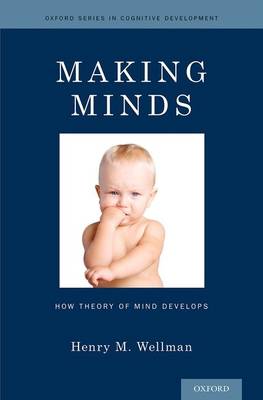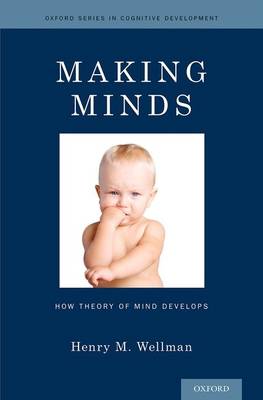
- Retrait gratuit dans votre magasin Club
- 7.000.000 titres dans notre catalogue
- Payer en toute sécurité
- Toujours un magasin près de chez vous
- Retrait gratuit dans votre magasin Club
- 7.000.000 titres dans notre catalogue
- Payer en toute sécurité
- Toujours un magasin près de chez vous
Description
Developmental psychologists coined the term "theory of mind" to describe how we understand our shifting mental states in daily life. Over the past twenty years researchers have provided rich, provocative data showing that from an early age, children develop a sophisticated and consistent "theory of mind" by attributing their desires, beliefs, and emotions to themselves and to others. Remarkably, infants barely a few months old are able to attend closely to other humans; two-year-olds can articulate the desires and feelings of others and comfort those in distress; and three- and four-year-olds can talk about thoughts abstractly and engage in lies and trickery. This book provides a deeper examination of how "theory of mind" develops. Building on his pioneering research in The Child's Theory of Mind (1990), Henry M. Wellman reports on all that we have learned in the past twenty years with chapters on evolution and the brain bases of theory of mind, and updated explanations of theory theory and later theoretical developments, including how children conceive of extraordinary minds such as those belonging to superheroes or supernatural beings. Engaging and accessibly written, Wellman's work will appeal especially to scholars and students working in psychology, philosophy, cultural studies, and social cognition.
Spécifications
Parties prenantes
- Auteur(s) :
- Editeur:
Contenu
- Nombre de pages :
- 378
- Langue:
- Anglais
- Collection :
Caractéristiques
- EAN:
- 9780199334919
- Date de parution :
- 06-11-14
- Format:
- Livre relié
- Format numérique:
- Genaaid
- Dimensions :
- 163 mm x 236 mm
- Poids :
- 657 g







